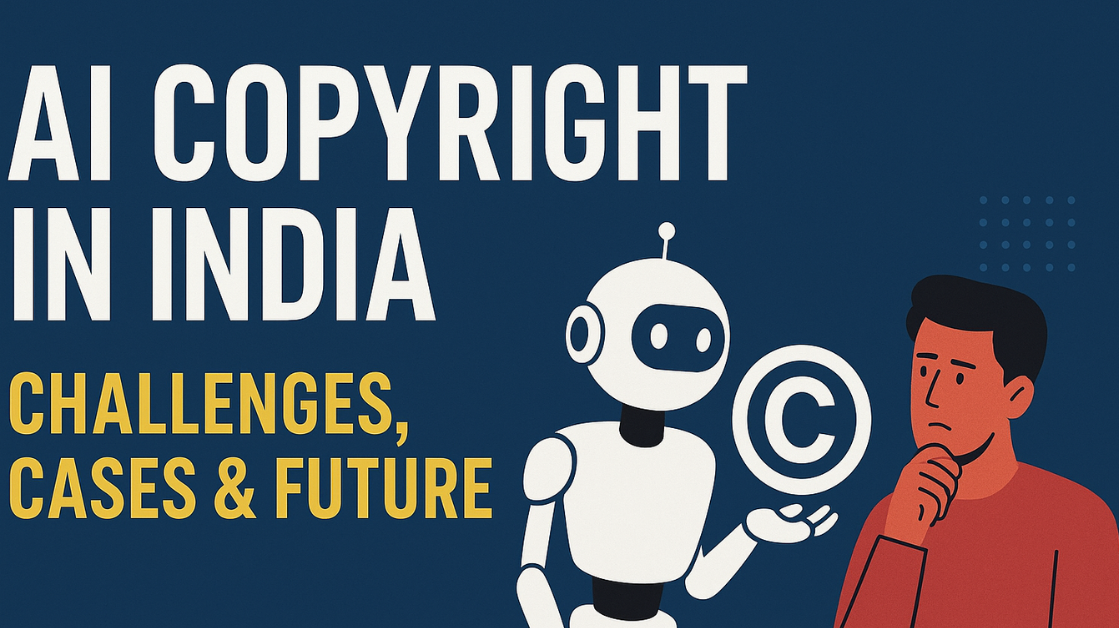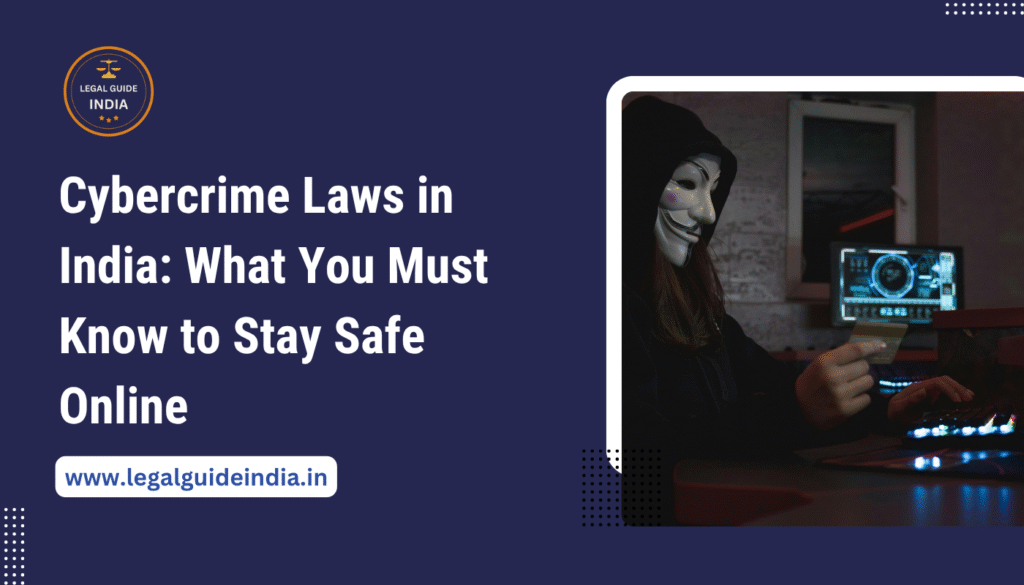The rapid growth of artificial intelligence (AI) has sparked global debates on copyright ownership, creativity, and legal responsibility. In India, the question of AI copyright is no longer academic—it affects publishers, artists, startups, and policymakers alike. With the increasing use of AI-generated content in music, art, films, and even journalism, the Indian legal system faces critical challenges in determining authorship, originality, and liability.
This pillar guide examines how AI copyright in India is treated under the Copyright Act, 1957, the role of Section 2(d) and Section 52, recent disputes involving datasets and publishers, and the urgent need for reforms.
What Does Indian Law Say About Copyright?
The Indian Copyright Act, 1957 provides exclusive rights to authors and creators. Key sections include:
- Section 2(d): Defines “author” of a work. Currently, it recognizes human authorship but does not account for AI-generated content.
- Section 13 & 14: Establish the scope of works protected and exclusive rights over them.
- Section 17: Identifies the “first owner” of copyrighted works.
- Section 52: Introduces “fair dealing” exceptions, which are central to text and data mining (TDM) debates for AI training.
Since Indian law does not explicitly address AI authorship, the current framework leaves ambiguity over who owns AI outputs.
Who Owns AI-Generated Content in India?

One of the biggest challenges is determining authorship and ownership:
- AI content ownership India: Can the machine be considered the “author”? At present, Indian courts and statutes recognize only natural persons as authors.
- Prompts and users: If a user provides a detailed prompt to an AI system, can they claim ownership? This remains unresolved under Indian law.
- Employers and startups: When employees use AI tools at work, ownership often defaults to the employer under Section 17—but only if the work qualifies as “authored.”
Thus, the debate on AI-generated content copyright in India remains open, raising practical questions for creators and businesses.
AI Training, Datasets, and Section 52 Fair Dealing
Another pressing issue is whether AI training on copyrighted works amounts to infringement.
- AI dataset copyright India: Datasets often include copyrighted text, music, and images scraped from the internet.
- Fair dealing India (Section 52): This provision allows limited use of works for research, criticism, or reporting. However, whether text and data mining (TDM) for AI training qualifies as fair dealing is unclear.
- International comparisons: The EU has specific TDM exceptions, while India lacks explicit guidelines—leaving AI startups exposed to legal risk.
Without clarity, both startups and major tech companies may face AI copyright infringement India claims from publishers and artists.
Originality and Derivative Works in AI Outputs
Courts in India often apply the “originality requirement” test to determine copyright protection. For AI-generated content:
- If the output is entirely machine-generated, it may not satisfy originality under Indian standards.
- If human input (through prompts or editing) is substantial, the user may argue authorship.
- Issues also arise when AI outputs are “derivative works” based on existing copyrighted material, raising infringement risks.
This makes AI copyright law in India highly complex, balancing between protecting human creators and encouraging innovation.
Industry Disputes and Global Context
Several disputes highlight the growing tension:
- News publishers in India have raised concerns over AI scraping articles for training models.
- Music and film industries fear loss of royalties due to AI-generated songs and voice cloning.
- Globally, lawsuits against OpenAI and other AI companies may influence Indian regulators in framing AI copyright amendments.
India’s lack of explicit legal provisions puts both creators and innovators in uncertain territory.
Future of AI and Copyright Reform in India
Legal experts and policymakers are discussing reforms such as:
- Amending the Copyright Act, 1957 to define AI authorship.
- Introducing a TDM exception for research and startups, similar to the EU model.
- Establishing licensing frameworks for publishers and content creators.
- Requiring AI companies to maintain dataset transparency and copyright compliance.
Until reforms are made, businesses may need to consult an AI copyright lawyer in India to draft policies, contracts, and licensing agreements to reduce risk.
Conclusion
The intersection of AI and copyright in India is complex, evolving, and urgently in need of reform. Questions of authorship, fair dealing, originality, and liability remain unsettled under Indian law. As India emerges as a global AI hub, its courts and lawmakers must strike a balance between encouraging innovation and protecting creators’ rights.
For creators, startups, and businesses, the safest path is to stay informed, adopt AI copyright compliance practices, and prepare for upcoming reforms that will reshape the digital and legal landscape.
FAQs
Q1. Can AI-generated content be copyrighted in India?
Currently, Indian copyright law does not explicitly recognize AI as an author. Copyright is generally granted only to human creators. If AI generates content, the copyright may belong to the person who provided input, but this is still a grey area in Indian law.
Q2. Who owns the copyright of AI-generated content in the USA?
In the U.S., copyright law requires a human author. The U.S. Copyright Office has clarified that works created solely by AI without human involvement cannot be copyrighted. If a human has made creative contributions, they may claim ownership.
Q3. Is AI-generated art protected under copyright law?
AI-generated art is generally not protected unless there is clear human involvement in the creative process. Some jurisdictions may allow copyright protection if the human role is significant in guiding or editing the AI output.
Q4. What are the legal issues with AI-generated music and copyright?
AI-generated music creates challenges around originality, authorship, and licensing. Since AI lacks legal personhood, copyright can only be claimed if a human has played a creative role in directing or modifying the output. Otherwise, the work may fall into the public domain.
Q5. Can AI tools use copyrighted material for training datasets legally?
This depends on the country. Some argue it falls under fair use (U.S.) or fair dealing (UK/India), but rights holders often dispute it. Legal clarity is still evolving, and lawsuits are ongoing against AI companies for using copyrighted datasets without permission.
Q6. Does Indian copyright law allow AI to be considered an author?
No, Indian copyright law does not recognize AI as an author. Only natural persons (humans) or legal entities (companies) can hold copyright. AI outputs may be owned by the person or organization using the AI, depending on the case.
Q7. What are the risks of using AI-generated content for commercial purposes?
The main risks include:
- Copyright infringement (if the AI used protected datasets).
- No copyright protection for your own AI-generated work.
- Legal disputes over authorship and ownership.
Q8. How do courts treat copyright disputes involving AI-generated content?
Courts usually look for the level of human involvement in the creative process. If the AI-generated work is purely machine output, it often cannot be copyrighted. If a human guided or modified it significantly, courts may grant copyright protection.
To read more Indian Laws and news, visit Legal Guide India



